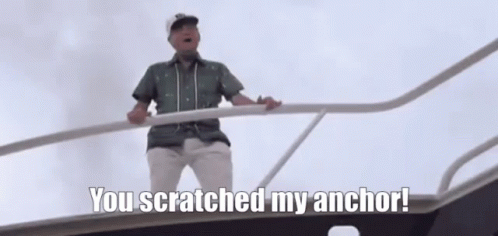
Posted on 05/29/2023 1:19:56 PM PDT by VRW Conspirator
Safe Boating Tips
No matter how much experience you have, it’s always a good idea for everyone to review boating safety rules before departures. Below you will find 10 basic boating safety tips to help you stay safe:
1.Be Weather-Wise
Always check local weather conditions before departure; TV and radio forecasts can be a good source of information. If you notice darkening clouds, volatile and rough changing winds or sudden drops in temperature, play it safe by getting off the water.
2.Follow a Pre-Departure Checklist
Proper boating safety includes being prepared for any possibility on the water. Following a pre-departure checklist is the best way to make sure no boating safety rules or precautions have been overlooked or forgotten.
3.Use Common Sense
One of the most important parts of boating safety is to use your common sense. This means operating at a safe speed at all times (especially in crowded areas), staying alert at all times and steering clear of large vessels and watercraft that can be restricted in their ability to stop or turn. Also, be respectful of buoys and other navigational aids, all of which have been placed there to ensure your own safety.
4.Designate an Assistant Skipper
Make sure more than one person on board is familiar with all aspects of your boat’s handling, operations, and general boating safety. If the primary navigator is injured or incapacitated in any way, it’s important to make sure someone else can follow the proper boating safety rules to get everyone else back to shore.
5.Develop a Float Plan
Whether you choose to inform a family member or staff at your local marina, always be sure to let someone else know your float plan. This should include where you’re going and how long you’re going to be gone.
A float plan can include the following information: name, address, and phone number of trip leader name and phone number of all passengers boat type and registration information trip itinerary types of communication and signal equipment onboard, such as an Emergency Position Indicating Radio Beacon (EPIRB) or Personal Locator Beacon (PLB)
6.Make Proper Use of Lifejackets
Did you know that the majority of drowning victims are the result of boaters not wearing their lifejackets? Make sure that your family and friends aren’t part of this statistic by assigning and fitting each member of your onboard team with a life jacket prior to departure. Wear it!
7.Avoid Alcohol
Practice boating safety at all times by saving the alcohol for later. The probability of being involved in a boating accident doubles when alcohol is involved and studies have shown that the effects of alcohol are exacerbated by sun and wind.
8.Learn to Swim
If you’re going to be in and around the water, proper boating safety includes knowing how to swim. Local organizations, such as the American Red Cross and others, offer training for all ages and abilities. Check to see what classes are offered in your area.
9.Take a Boating Course Beginning boaters and experienced experts alike need to be familiar with the boating safety rules of operation. Boater education requirements vary by state; however, some require validated completion of at least one boating safety course. Regardless of your individual state's requirements, it's always important to be educated and prepared for every circumstance that might arise. You can learn boating safety rules by taking a local community course or online course to help educate yourself.
10.Consider a Free Vessel Safety Check Take advantage of a free vessel safety check from the US Coast Guard. They offer complimentary boat examinations to verify the presence and condition of certain safety equipment required by state and federal regulations. Free of charge, they’ll provide a specialist to check out your boat and make helpful boating safety tips and recommendations. They also offer virtual online safety checks as well.

Tell me about it. I lost my entire gun collection in a tragic boating accident.
FReepers are such lousy boaters
—
How do you reach that silly conclusion - I spent 30 years at sea.
Quit transporting all of your firearms by boat?
I like to watch some of the boat ramp videos. Lots of lessons to be learned there. Amazing how many boats with capable people on board to handle a line, and the captain leaves the wheel so he can work a line.
Those Rules only are good for small lakes & ponds, rivers. The Sea has a different set of rules of which those mentioned are just for starters **before you buy a boat**.
What are the two happiest days in a boat owner’s life?
B.O.A.T.
Bring out another thousand.
What are the two happiest days in a boat owner’s life?
—
There are any? Pleasure boating and commercial fishing are two different worlds with different rules.

Then there's this -

“I lost my entire gun collection in a tragic boating accident.”
Typical FReeper.
I resemble that remark.
“I like to watch some of the boat ramp videos. Lots of lessons to be learned there.”
A fishing and hunting website I frequent has an ongoing thread called “boat ramp confessional” lots o funny stuff. Trying to back the boat off the trailer with the rear straps still on, forget to put in drain plugs, running 2 hours to fishing spot and realizing fishing rods in truck back back at ramp, do a good job of getting boat on trailer only to find out you loaded it on the wrong trailer/truck, etc.
“What are the two happiest days in a boat owner’s life?”
The day they bought the boat and the day they sold the boat.
Correctamundo!
*bloop*
Was that the fish finder?
Disclaimer: Opinions posted on Free Republic are those of the individual posters and do not necessarily represent the opinion of Free Republic or its management. All materials posted herein are protected by copyright law and the exemption for fair use of copyrighted works.